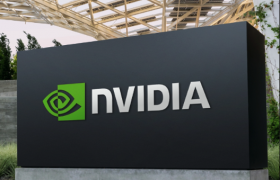Lambda Scores $480 Million to Grow AI Services

In a move that spotlights the trend toward massive funding of AI infrastructure-as-a-service companies, Lambda has scored $480 million in Series D funding to continue building out its global network of GPUs and software. The funding comes on top of $320 million in Series C money raised at this time last year.
Lambda’s latest round was led by Andra Capital and SGW with new participants Andrej Karpathy, ARK Invest, Fincadia Advisors, G Squared, In-Q-Tel (IQT), KHK & Partners, NVIDIA, and others. Pegatron, Supermicro, Wistron and Wiwynn also participated, as well as existing investors including 1517, Crescent Cove, and USIT.
More Than Just GPUs
With its Series C last year, Lambda was focused on building out its GPU cloud. This year it's intent on building out tools developers require to use that network.
“We’re investing in both the underlying infrastructure… but we’re also making major investments in terms of the software layer that runs on top of it,” said Stephen Balaban, CEO and cofounder of Lambda, in a video message about the announcement. “Expect to see more things like the Lambda Inference API that’s recently been launched. Expect to see more things like Lambda Chat.”
Lambda introduced the Lambda Inference API in December 2024. It provides access to popular large language models (LLMs) through a serverless API. The company’s Lambda Chat service makes a range of popular chat models, including DeepSeek’s R1 671b, available to developer customers.

Lambda CEO and cofounder Stephen Balaban. Source: Lambda
A Boom in Financing
Lambda joins a handful of companies in the same niche that have received sizable funding over the past six months, as outlined below:
CoreWeave announced a $650 secondary share sale in November 2024 sponsored by Cisco, Pure Storage, BlackRock, Coatue, and Fidelity. To date, the company has raised over $12 billion.
Crusoe announced its own Series D round of $600 million in December 2024, led by Founders Fund with participation from Fidelity, Long Journey Ventures, Mubadala, NVIDIA, Ribbit Capital, and Valor Equity Partners. Crusoe is also part of the recently announced U.S. Stargate project, since Oracle reportedly has enlisted Crusoe to build its first Stargate datacenter in Abilene, Texas.
Nebius Group, a public company based in Amsterdam, announced in December 2024 $700 million in financing from investors that included Accel, NVIDIA, and Orbis Investments. Like Lambda, the company said it’s focused on developer tools such as a Nebius AI Studio inference service as well as physical layer infrastructure. Nebius also said it expects its 2025 annual recurring revenue (ARR) to fall between $750 million and $1 billion.
Vultr also raised money in December 2024 to the tune of $333 million. Interestingly, one of its lead investors wasn’t NVIDIA but AMD Ventures, the investment arm of NVIDIA rival Advanced Micro Devices (AMD). Vultr’s other lead investor was LuminArx Capital Management.
TensorWave, based in Las Vegas, also saw investment from AMD Ventures in October 2024. Its Simple Agreement for Future Equity (SAFE) funding round of $45 million was led by Nexus VP with participation from, in addition to AMD, Maverick Capital, Translink Capital, Javelin Venture Partners, and StartupNV. TensorWave specializes in offering AMD GPUs as an alternative to NVIDIA infrastructure.
All told, the sampling of AI infrastructure service providers above raised over $2.3 billion within the past six months.
Eyes on Inferencing
As noted, the rising tide of AI service providers—sometimes known as “neoclouds” due to the size of their datacenter footprint compared to the public cloud hyperscalers such as AWS, Microsoft Azure, and Google Cloud—are focused on more than the physical layer infrastructure of GPUs that the world’s largest companies need for training LLMs. They are instead realizing that while training is key to AI deployment, a large enterprise opportunity lies in inferencing, or the process of making trained models work with specific datasets for targeted AI applications.
Notably, enterprises can realize significant advantages in working with neocloud providers compared to adopting hyperscaler AI instances, since the neoclouds don’t require a prerequisite investment in additional services to power AI development.
Expect More Entrants
The neocloud providers aren’t the only entities eyeing AI infrastructure services. There’s talk that telcos will offer inferencing services across their distributed networks. According to a recent survey of 450 telco leaders conducted by NVIDIA, 84% of respondents said they plan to offer “generative AI solutions externally to customers.” The top use case in this category, as stated by 52% of respondents, was providing generative AI software-as-a-service. A full 35% of those surveyed said they would like to offer a generative AI platform for developers, while 34% said they are planning to offer generative AI compute infrastructure.
The differentiator for telcos and any other would-be AI infrastructure-as-a-service providers will be whether they can move beyond basic AI compute, networking, and storage provisioning into software that will enable developers to use their platforms and clouds effectively. The smart money is with those that can.
Futuriom Take: The AI infrastructure-as-a-service market is growing fast and overtaking hyperscaler AI services as a preferred source of horsepower for AI inferencing. Expect to see much greater activity in this area as enterprises continue to adopt generative AI applications.


















